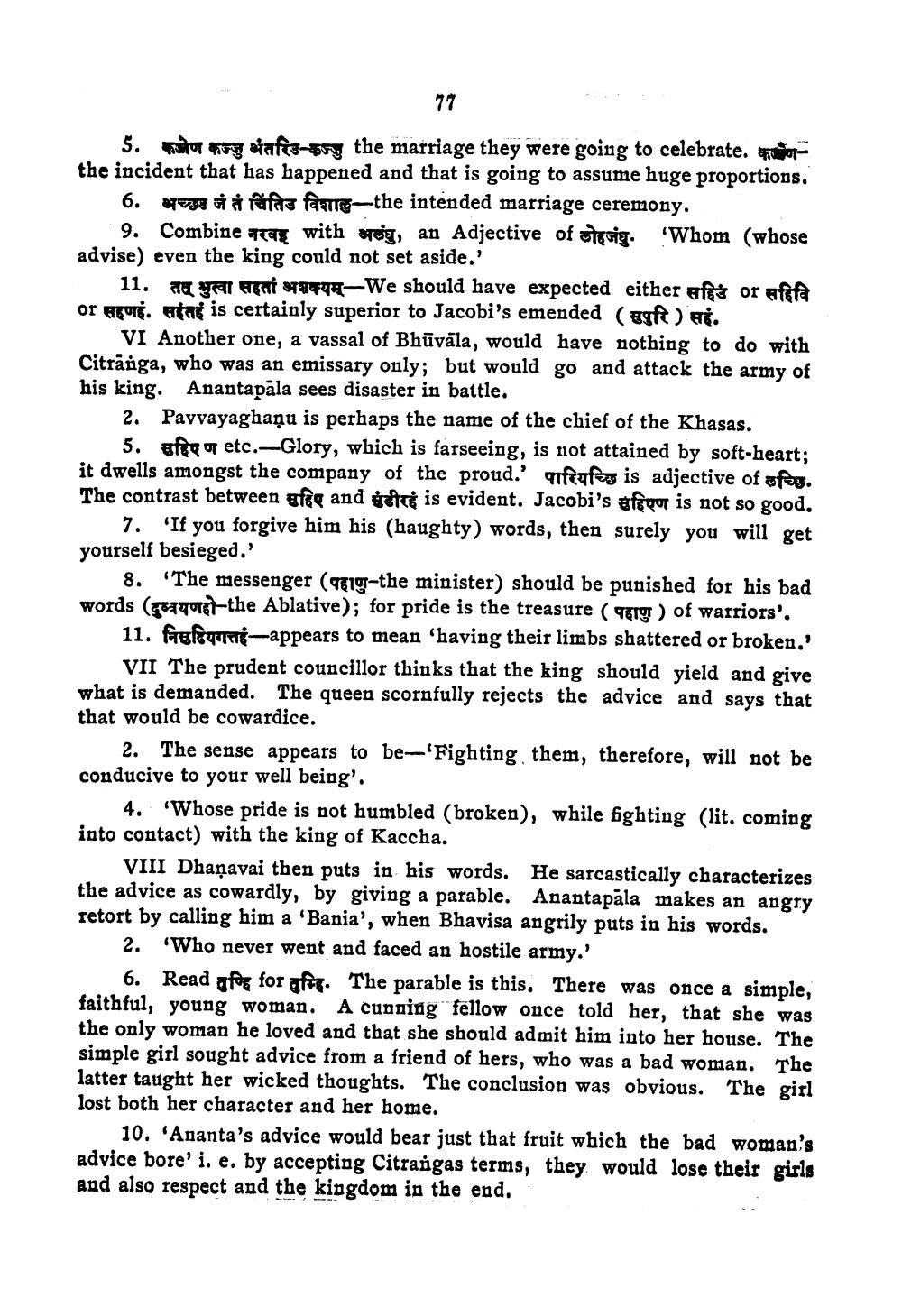________________
5. कोण कज्जु अंतरिउ-कज्ज the marriage they were going to celebrate. कोणthe incident that has happened and that is going to assume huge proportions.
6. Beeti pafas famne the intended marriage ceremony.
9. Combine Frage with steg, an Adjective of stevig. "Whom (whose advise) even the king could not set aside.'
11. तत् भुत्वा सहतां अशक्यम्-We should have expected either सहिडे or सहिदि or सहणहं. सईतई is certainly superior to Jacobi's emended (सुपुरि)सह..
VI Another one, a vassal of Bhūvāla, would have nothing to do with
a, who was an emissary only; but would go and attack the army of his king. Anantapāla sees disaster in battle.
2. Pavvayaghaņu is perhaps the name of the chief of the Khasas.
5. gfesor etc.-Glory, which is farseeing, is not attained by soft-heart; it dwells amongst the company of the proud.' feafa is adjective of ofas. The contrast between gfg and get is evident. Jacobi's effout is not so good.
7. If you forgive him his (haughty) words, then surely you will get yourself besieged.'
8. "The messenger (grig-the minister) should be punished for his bad words ( et-the Ablative); for pride is the treasure ( eig) of warriors'.
11. fare fourre-appears to mean 'having their limbs shattered or broken.'
VII The prudent councillor thinks that the king should yield and give what is demanded. The queen scornfully rejects the advice and says that that would be cowardice.
2. The sense appears to be-'Fighting them, therefore, will not be conducive to your well being'.
4. Whose pride is not humbled (broken), while fighting (lit. coming into contact) with the king of Kaccha.
VIII Dhanavai then puts in his words. He sarcastically characterizes the advice as cowardly, by giving a parable. Anantapala makes an angry retort by calling him a 'Bania', when Bhavisa angrily puts in his words.
2. "Who never went and faced an hostile army.'
6. Read afor for afis. The parable is this. There was once a simple, faithful, young woman. A cunning fellow once told her, that she was the only woman he loved and that she should admit him into her house. The simple girl sought advice from a friend of hers, who was a bad woman. The latter taught her wicked thoughts. The conclusion was obvious. The girl lost both her character and her home.
10. 'Ananta's advice would bear just that fruit which the bad woman's advice bore' i. e. by accepting Citrangas terms, they would lose their girls and also respect and the kingdom in the end.




